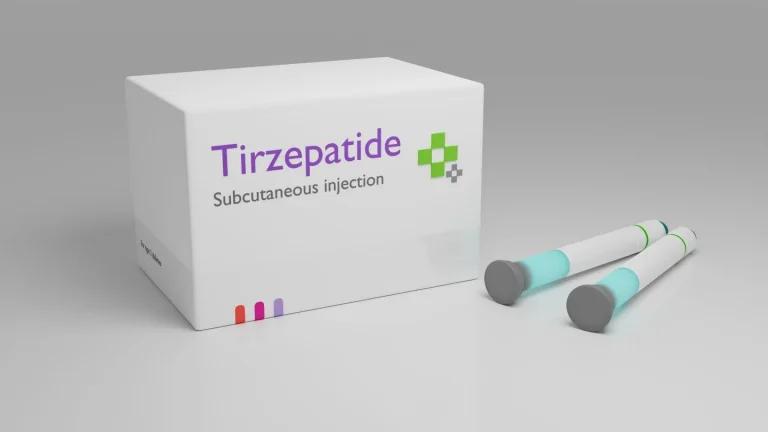Obesity and being overweight have become global health epidemics, with staggering statistics indicating that over 1 billion people worldwide are affected. As these conditions continue to rise, the need for effective and innovative treatment options has become increasingly pressing. Enter retatrutide, a new weight loss drug manufactured by Eli Lilly and Company. Once this life-changing drug receives U.S. FDA (Food and Drug Administration) approval it may revolutionise the way we approach the management of obesity and being overweight.
Understanding retatrutide
Retatrutide, also known as LY3437943, is a unique pharmaceutical compound that has garnered significant attention in the medical community. It is classified as an incretin mimetic agent, a class of medications that target the body’s natural hormone-based mechanisms for regulating appetite, metabolism, and weight.
Mechanism of action
What sets retatrutide apart is its ability to simultaneously activate three key receptors: the glucose-dependent insulinotropic polypeptide (GIP) receptor, the glucagon-like peptide-1 (GLP-1) receptor, and the glucagon (GCG) receptor. This triple-agonist approach is believed to enhance the compound’s efficacy in reducing energy intake, increasing energy expenditure, and modulating various metabolic processes.
Pharmacokinetic profile
Retatrutide exhibits a favourable pharmacokinetic profile, with a half-life of approximately 6 days, allowing for convenient once-weekly administration. This extended duration of action is a significant advantage, as it can improve patient adherence and optimise the drug’s therapeutic potential.
Clinical trials
The promising potential of retatrutide has been extensively explored through a series of clinical trials, each providing valuable insights into the drug’s efficacy and safety.
Phase 2 clinical trial
A pivotal phase 2 clinical trial, conducted in the United States, involved 338 adults with obesity or those who were overweight. Participants were randomly assigned to receive varying doses of retatrutide or a placebo, administered subcutaneously once weekly for 48 weeks.
Body weight reduction
The results of this trial were nothing short of impressive. At the 24-week mark, participants receiving the highest dose of retatrutide (12 mg) experienced a remarkable mean weight reduction of 17.5%, equivalent to an average weight loss of 41.2 pounds (18.7 kg). Even more striking, at the 48-week endpoint, the 12 mg retatrutide group achieved a mean weight reduction of 24.2%, translating to an average weight loss of 57.8 pounds (26.2 kg).
Cardiometabolic improvements
In addition to the substantial weight loss, participants treated with retatrutide also demonstrated significant improvements in various cardiometabolic measures. These included a reduction in blood pressure, improvements in blood sugar levels, and positive changes in cholesterol levels.
Safety and tolerability
The safety and tolerability profile of retatrutide was generally consistent with other incretin-based therapies such as semaglutide (Ozempic/Wegovy) and tirzepatide (Mounjaro). The most commonly reported side effects were mild to moderate gastrointestinal issues, such as nausea, vomiting, diarrhoea, and constipation, which tended to occur during the higher dose period.
Phase 1b clinical trial
In a separate phase 1b clinical trial involving individuals with type 2 diabetes, retatrutide also demonstrated impressive results. Participants receiving the 12 mg dose experienced an average weight loss of 8.96 kg (approximately 10%) over the 12-week study period. Additionally, the trial showed reductions in HbA1c levels and improvements in other cardiometabolic parameters.
Future research
The promising findings from the phase 2 and phase 1b trials have paved the way for the next stage of retatrutide’s development: the TRIUMPH phase 3 clinical program.
TRIUMPH phase 3 trials
The TRIUMPH trials are a series of large-scale, randomised, double-blind, placebo-controlled studies that will further evaluate the safety and efficacy of retatrutide for the treatment of obesity and its associated conditions. These trials will involve diverse patient populations, including those with type 2 diabetes, established cardiovascular disease, and comorbidities such as obstructive sleep apnea and osteoarthritis.
Comprehensive evaluation
The TRIUMPH trials are designed to provide a comprehensive assessment of retatrutide’s potential benefits, going beyond just weight reduction. Researchers will investigate the drug’s impact on various obesity-related complications, to develop a comprehensive treatment approach that addresses the multifaceted nature of this chronic disease.
Advantages over existing therapies
Retatrutide’s unique mechanism of action, involving the simultaneous activation of three key receptors, sets it apart from other obesity medications currently available or in development. This innovative approach may offer enhanced efficacy in terms of weight loss and cardiometabolic improvements, potentially surpassing the outcomes observed with existing therapies.
Future outlook
The remarkable findings from the clinical trials conducted thus far have generated significant excitement and optimism within the medical community. Retatrutide’s ability to achieve substantial and sustained weight reduction, coupled with its favourable safety profile and potential for improving cardiometabolic health, suggests that it may represent a transformative advancement in the management of obesity and overweight.
Addressing the obesity epidemic
The global obesity epidemic is a pressing public health concern, with far-reaching implications for individual health, healthcare systems, and societal well-being. The development of effective and well-tolerated treatments like retatrutide could be a game-changer in the fight against this chronic condition, providing hope for millions of individuals struggling with excess weight and its associated comorbidities.
Potential impact on comorbidities
Beyond weight loss, the cardiometabolic benefits observed with retatrutide suggest that it may have the potential to address the broader spectrum of obesity-related complications. By improving parameters such as blood pressure, glucose control, and lipid profiles, retatrutide could contribute to the prevention and management of conditions like type 2 diabetes, cardiovascular disease, and non-alcoholic fatty liver disease.
Ongoing research and future possibilities
As the TRIUMPH phase 3 trials progress, researchers will continue to delve deeper into the long-term safety, efficacy, and real-world applicability of retatrutide. Additionally, exploring this triple-agonist approach may pave the way for developing other innovative therapies targeting the complex mechanisms underlying obesity and its comorbidities.
Conclusion
Retatrutide’s clinical trial results hold immense promise as a weight management medication. The substantial weight loss achieved, alongside the improvements in cardiometabolic markers, suggest that this investigational drug could change how we approach managing this chronic condition. As the TRIUMPH phase 3 trials unfold, the medical community and the public eagerly await the further elucidation of retatrutide’s long-term benefits and potential to address the global obesity epidemic.
Sources
- Unleashing the power of retatrutide: A possible triumph over obesity and overweight: A correspondence – PMC
- Triple–Hormone-Receptor Agonist Retatrutide for Obesity — A Phase 2 Trial | New England Journal of Medicine
- Lilly’s phase 2 retatrutide results – Investor
Medical Disclaimer
NowPatient has taken all reasonable steps to ensure that all material is factually accurate, complete, and current. However, the knowledge and experience of a qualified healthcare professional should always be sought after instead of using the information on this page. Before taking any drug, you should always speak to your doctor or another qualified healthcare provider.
The information provided here about medications is subject to change and is not meant to include all uses, precautions, warnings, directions, drug interactions, allergic reactions, or negative effects. The absence of warnings or other information for a particular medication does not imply that the medication or medication combination is appropriate for all patients or for all possible purposes.












